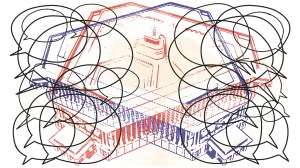New CBDT circular tightens scrutiny
In a bid to beef up tax compliance, the Central Board of Direct Taxes CBDT has laid down a fresh set of guidelines for selection of cases ...

In a bid to beef up tax compliance, the Central Board of Direct Taxes CBDT has laid down a fresh set of guidelines for selection of cases for scrutiny.
This would cover both corporate and non-corporate assessees. The new guidelines have also laid down a slew of cases which would be brought within the ambit of compulsory scrutiny. This includes professionals and individuals.
Among the corporate assessees which would be complusorily scrutinised are all National Stock Exchange NSE 500 corporates and Bombay Stock Exchange BSE-A group companies as on August 31,2004 listed on the bourses.
All banks and public sector undertakings are also included in the ambit of the new guidelines.
Corporates which claim a refund of Rs 50 lakh subsequent to the payment of advance tax will also come under the I-T lens. This limit varies depending on the city where the corporates are based.
The companies that have been claiming deduction over Rs 25 lakh for setting up industrial units in backward areas will be scrutinised as there have been instances where some of these claims turned out to be false.
Similarly, companies which are into exports and claim benefits for being located in export processing zones and have a turnover of Rs 10 crore will come under scrutiny as some of them have shown revenue from local sales as export proceeds.
Those companies which declare a net profit of over Rs 50 lakh will also come up for scrutiny. As per the new CBDT guidelines, those companies which enter into international transactions and structure in such a way to reduce the tax incidence will come under scrutiny if the value of the transaction is more than Rs 5 crore.
The broking companies whose gross brokerage disclosed is Rs 1 crore or above but the income declared is less than 10 per cent will come up for scrutiny. Similarly, these companies which have declared a bad debt of Rs 10 lakh will also be covered.
For individual brokers, the brokerage income set is Rs 50 lakh or above and bad debts of Rs 5 lakh or more. According to I-T officials, it is a usual practice by the brokers to write off huge amounts as bad debts.
- 01
- 02
- 03
- 04
- 05































